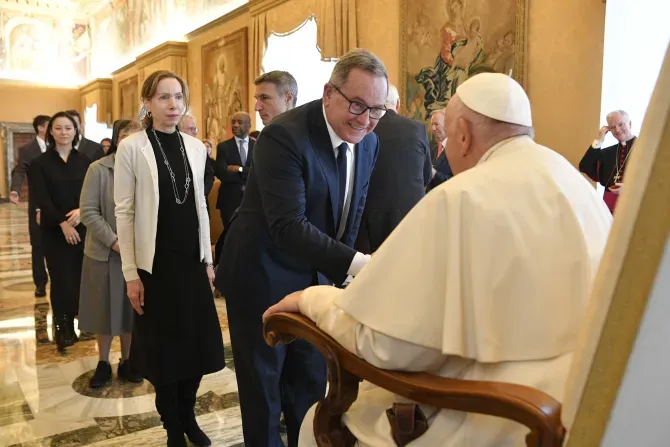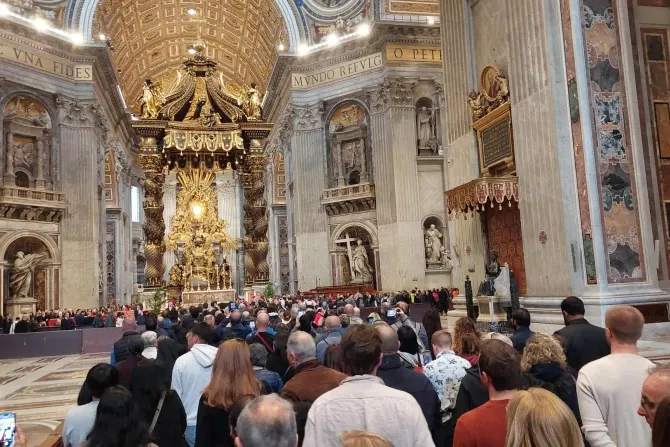Vatican, 27 March, 2023 / 2:57 pm (ACI Africa).
Pope Francis said emerging technologies such as artificial intelligence and machine learning could be beneficial to society as long as they respect human dignity.
“The fundamental value that we must recognize and promote is that of the dignity of the human person,” the pope said during a March 27 audience at the Vatican with participants in the Minerva Dialogues.
Organized by the Dicastery for Culture and Education, the Minerva Dialogues is a meeting of scientists, engineers, business leaders, lawyers, philosophers, Catholic theologians, ethicists, and members of the Roman Curia to discuss digital technologies.
 Pope Francis meets with participants of the Minerva Dialogues — a meeting of scientists, engineers, business leaders, lawyers, philosophers, Catholic theologians, ethicists, and members of the Roman Curia to discuss digital technologies — at the Vatican on March 27, 2023. Credit: Vatican Media
Pope Francis meets with participants of the Minerva Dialogues — a meeting of scientists, engineers, business leaders, lawyers, philosophers, Catholic theologians, ethicists, and members of the Roman Curia to discuss digital technologies — at the Vatican on March 27, 2023. Credit: Vatican Media
“I encourage you, in your deliberations, to make the intrinsic dignity of every man and every woman the key criterion in evaluating emerging technologies,” Francis told participants. “These will prove ethically sound to the extent that they help respect that dignity and increase its expression at every level of human life.”





 Pope Francis meets with participants of the Minerva Dialogues — a meeting of scientists, engineers, business leaders, lawyers, philosophers, Catholic theologians, ethicists, and members of the Roman Curia to discuss digital technologies — at the Vatican on March 27, 2023. Credit: Vatican Media
Pope Francis meets with participants of the Minerva Dialogues — a meeting of scientists, engineers, business leaders, lawyers, philosophers, Catholic theologians, ethicists, and members of the Roman Curia to discuss digital technologies — at the Vatican on March 27, 2023. Credit: Vatican Media


